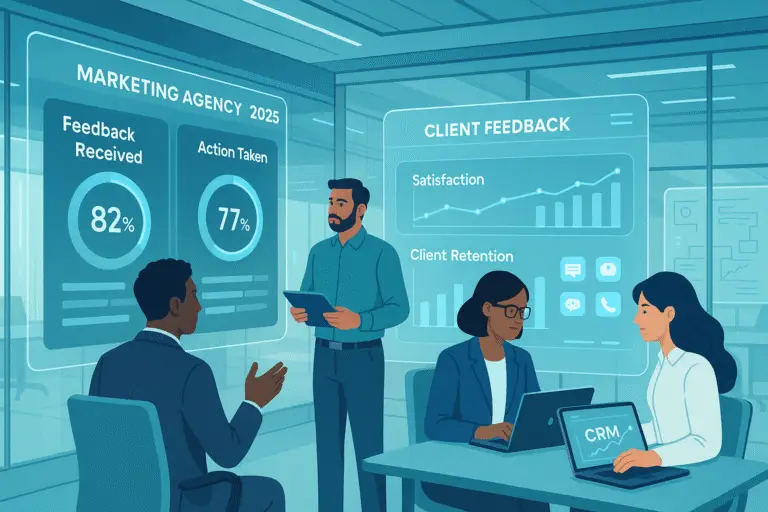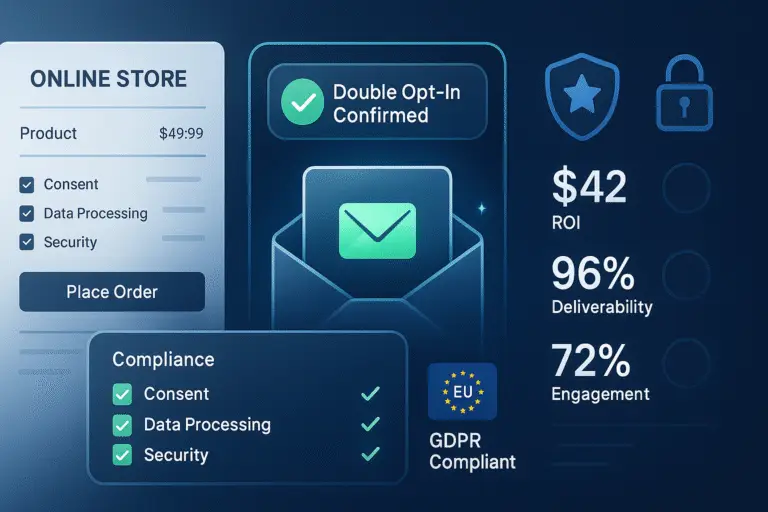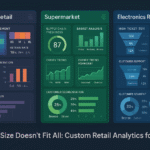AI content creation for marketers has transformed brand communication, automating routine tasks while enabling extraordinary personalization and efficiency. By 2025, AI content marketing tools will be fundamental components of marketing technology stacks, with AI-driven content strategies delivering clear ROI through advanced automation and comprehensive analytics capabilities.
We’ll cover the following areas:
- AI content generators 2025 and their impact on marketing workflows
- How to implement AI-powered content marketing platforms for enterprise-level campaigns
- Strategies for automating content workflows with AI while maintaining brand authenticity
- AI content personalization techniques that drive engagement and conversions
- Real-world case studies on AI content automation success stories
The Evolution of AI Content Creation Tools
The landscape of AI-driven marketing copywriting solutions has advanced dramatically in recent years. Today’s generative AI for content creation tools exceed basic text generation, offering sophisticated capabilities that comprehend context, brand voice, and audience preferences.
By 2025, we’ll see AI content generators that seamlessly connect with existing marketing systems, providing complete solutions from ideation to distribution. These advanced systems will offer:
- Multi-modal content creation across text, images, and video
- Real-time optimization based on performance data
- Customizable workflows that match specific industry needs
- Enhanced compliance and brand safety features
Key Players Transforming the Market
Several AI writing assistants for marketers have established market leadership, with capabilities indicating future technology directions:
1. OpenAI’s GPT models have set the standard for natural language generation
2. Jasper AI has carved out a niche for marketing-specific content creation
3. Copy.ai focuses on specialized marketing formats like ads and email sequences
4. Contentful’s AI features integrate with broader content management ecosystems
The most effective AI content marketing tools are increasingly specialized. They offer industry-specific templates and knowledge bases. These tools grasp the nuances of different sectors like finance, healthcare, and e-commerce.
How to Automate Content Creation with AI
Implementing AI content automation effectively requires a strategic approach balancing efficiency with creativity. I’ve found the most successful implementations follow this structured methodology:
1. Audit your current content process to identify repetitive tasks
2. Start with smaller, measurable projects before scaling
3. Prioritize use cases with high volume but relatively standardized formats
4. Develop clear guidelines for AI assistance vs. human creativity
5. Establish feedback loops to continuously improve AI outputs
AI video creation and automation is growing rapidly in this field. Tools are available that convert text-based content into engaging visual stories. This happens with minimal human input.
Practical Implementation Steps
To begin automating content workflows with AI, follow these actionable steps:
- Map your content production lifecycle from ideation to distribution
- Identify specific pain points where AI can provide immediate value
- Select tools that integrate with your existing tech stack
- Develop clear “human-in-the-loop” protocols for quality control
- Create training materials specific to your brand voice
Enterprise-Level AI Content Marketing Platforms
For larger organizations, AI-powered content marketing platforms for enterprises offer advanced capabilities beyond basic content generation. These platforms deliver comprehensive solutions that address the complete content lifecycle from planning to performance analysis.
Key features to look for in enterprise platforms include:
- Workflow automation and approval processes
- Integration with existing CMS and DAM systems
- Multi-language support and translation capabilities
- Advanced analytics and predictive optimization
- Scalable content production for multiple channels
Organizations like Adobe have integrated AI throughout their marketing cloud offerings, creating efficient experiences that accelerate content production while maintaining brand consistency across global markets.
AI Content Personalization for Targeted Marketing
Perhaps the most powerful application of AI in marketing is personalization at scale. By analyzing user behavior, preferences, and contextual factors, AI content personalization tools can deliver highly relevant experiences to each audience segment.
The most sophisticated implementations:
1. Dynamically adjust content based on user intent and behavior
2. Create segment-specific variations at scale
3. Optimize conversion paths through predictive analytics
4. Test and refine messaging automatically
Brand voice AI customization has become particularly important as personalization deepens. The best systems can maintain consistent brand personality while varying tone and messaging to match different audience segments or funnel stages.
Personalization in Action: E-commerce Case Study
A leading e-commerce retailer implemented AI content personalization across their customer communications, achieving remarkable results:
- 32% increase in email open rates
- 47% higher click-through rates on personalized product recommendations
- 21% improvement in conversion rate from abandoned cart sequences
The system used AI content distribution tools to automatically deliver the right message at optimal times across multiple channels, creating a cohesive experience that significantly boosted performance metrics.
AI Content Automation for Ad Campaigns
Ad creative has always been difficult to scale while maintaining quality. AI content automation for ad campaigns solves this challenge by generating variations and optimizing based on performance data.
Modern AI ad tools can:
1. Create dozens of headline and copy variations from core messaging
2. Generate visuals that match brand guidelines and perform well
3. Optimize ad spend allocation based on real-time performance
4. Adjust messaging for different platforms automatically
This capability becomes particularly powerful when combined with AI content performance analytics that provide actionable insights into what’s working and why.
Ethical Considerations in AI Content Creation
As AI content tools become more sophisticated, ethical AI content automation practices become increasingly crucial. Key considerations include:
- Transparency about AI-generated content
- Avoiding harmful biases in training data
- Respecting intellectual property rights
- Ensuring factual accuracy and preventing misinformation
The most responsible approaches combine automated content creation with human oversight, particularly for sensitive topics or regulated industries. This hybrid approach ensures efficiency without sacrificing accuracy or brand reputation.
AI Content Repurposing Strategies
One of the most efficient applications of AI is content repurposing — transforming existing assets into new formats for different channels. AI content repurposing tools can:
1. Convert long-form articles into social media posts
2. Transform blog content into email sequences
3. Extract key points for infographics or presentations
4. Generate video scripts from written content
This approach maximizes the value of your content investments while ensuring consistent messaging across all customer touchpoints.
Case Studies: Real-World AI Content Automation Success
Examining case studies on AI content automation reveals practical insights into implementation strategies and expected outcomes. Three patterns emerge from successful implementations:
1. Start small and scale – Organizations that begin with focused use cases tend to see better adoption
2. Emphasize training and integration – Tools that fit existing workflows perform better
3. Measure specific KPIs – The most successful implementations track concrete metrics
Companies like HubSpot have reported 50%+ increases in content production velocity while maintaining quality standards through AI-assisted workflows.
Conclusion: The Future of AI in Marketing Content
As we approach 2027, AI content creation for marketers will continue to evolve from a novelty into a fundamental capability for competitive organizations. The most successful teams will approach AI as a collaborative partner rather than a replacement for human creativity.
The winning strategy combines sophisticated AI content marketing tools with clear brand guidelines and strategic human oversight. This balanced approach delivers the efficiency benefits of automation while preserving the authentic human connection that ultimately drives marketing success.
Key Takeaways
- AI content creation tools are rapidly evolving beyond basic text generation to comprehensive marketing solutions
- Successful implementation requires strategic planning and integration with existing workflows
- Personalization at scale represents one of the highest-value applications of AI in marketing
- Ethical considerations and brand authenticity remain critical even as automation increases
- The future belongs to hybrid approaches that leverage AI for efficiency while preserving human creativity
What AI content automation strategies are you exploring for your marketing team? I’d love to hear your experiences with these tools and how they’re transforming your content operations.
Discover more from SaaSPrism
Subscribe to get the latest posts sent to your email.








